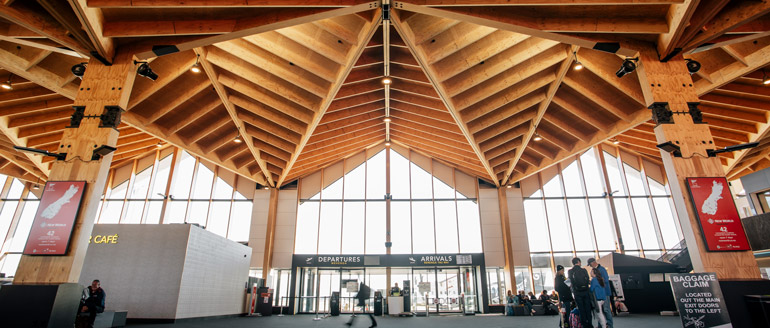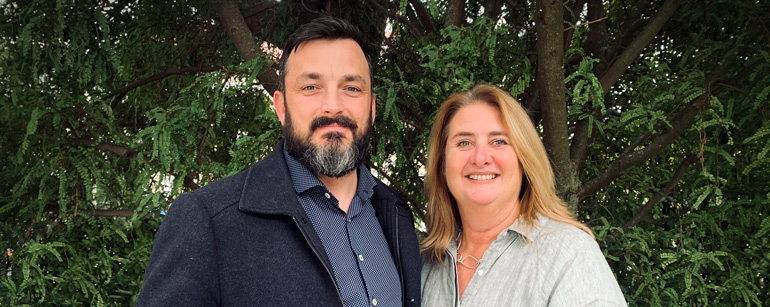He kupu takamua nā ngā hoa-toihau – A foreword from our Co-chairs
The Nelson Tasman region is full of richness and opportunity. Our region is an exciting place to live and work, and this is reflected by our knowledgeable, curious, creative, and resilient businesses and workforce.
On this page

Photo credit: Nelsontasman.co.nz
Our region has its share of workforce challenges
However, we’re no stranger to ongoing labour market issues and workforce shortages of both skills and labour. We have low productivity and low wages compared to the rest of New Zealand; a high reliance on migrant labour (especially for our seasonal work); and an ageing workforce. The COVID-19 pandemic has highlighted these challenges, and many of our businesses, industry sectors, and communities are struggling.
We also have opportunities to address these challenges
The Te Tauihu Intergenerational Strategy (TTIS) notes that
"With a unified regional strategy that focuses on the wellbeing of people and the environment, Te Tauihu is well positioned to lead the country and, indeed, the world in this space. But this calls for everyone to play their part."
Our part, as your Nelson Tasman Regional Skills Leadership Group (RSLG), is to provide leadership, collaboration, and co-operation across our communities, industries, businesses, and vocational education providers to understand our skills and labour needs, now and into the future. Our task is to enable a regional workforce to be developed that will help achieve the vision and intergenerational outcomes of the Te Tauihu Intergenerational Strategy.
The Nelson Tasman RSLG is one of 15 RSLGs nationwide. Our members are a diverse and forward-thinking group of regional industry, community, and iwi representatives who live and work in our region. Appointed by Government, our members have been carefully selected to be bold and audacious. Working together, we have been questioning our current challenges, exploring opportunities, and collaborating across our region to identify ways our workforce, businesses, and communities can thrive.
The Regional Workforce Plan (RWP) is our commitment to Nelson Tasman
To lift wages and improve working conditions and productivity, we need a plan to build our regional workforce. Good planning requires detailed regional data and information to grow our understanding of the labour, skills, and workforce requirements of our region. We are using the goals of the TTIS to plan a better future for our people and our industries.
Most employers we have spoken to tell us they are looking for staff. The national and regional commentary is that our current unemployment rate is low, and the number of under-employed workers (those who would like more work) has come down. However, there is a marked shift from part-time to full-time work, and we are close to maximum utilisation of the workforce.
Our goal is to address future skill shortages by growing our own talent, retaining more of our young people, and attracting more families to live and work in our region. This will ensure our workers and businesses are enabled to respond to changing work and innovation. It will also help increase productivity, and provide decent work (work that is secure, fairly paid, flexible; allows work/life balance and personal development; and is meaningful and motivating) for all members of our community.
This is our first plan and reflects the comment in the TTIS that ‘transformative change often starts small, but it is strategic and enduring’. This plan is just the beginning. As your RSLG, we will review and update the RWP annually. We will engage with you as work progresses to plan and deliver actions and initiatives that allow our economy, our businesses, and most importantly, our people to thrive. We have started with a focus on the workforce needs of two of our industry sectors (construction and aquaculture), and the regional workforce opportunity of two of our demographic groups (rangatahi and older workers). We will begin adding to these sectors and demographic groups in the refreshed plans to be released in 2023, 2024, and in a new plan in 2025.
The RWP supports and adds value to work already underway
We aim to work alongside and strengthen the work already underway in our communities, as outlined in our regionally developed strategies that support our regional wellbeing, specifically the TTIS and the Nelson Tasman Regeneration Plan 2020-2031 (Project Kōkiri 2.0). We also aim to contribute to, and build on, the national work for a stronger and more relevant vocational and education system.
Building the resilience and wellbeing of our businesses and communities will be no easy feat. Our region’s industries, businesses, and community groups will need to work together with our vocational education and training providers, using every tool in our toolbox to ensure our region’s workforce can meet our aspirations and enable all of us to thrive.
We look forward to working with you on this journey.
Justin Carter, Iwi Co-chair, and Ali Boswijk, Co-chair
Te Tauihu website(external link)
Project Kōkiri website(external link)
Reform of Vocational Education(external link) — Tertiary Eduction Commission

Co-chairs Justin Carter and Ali Boswijk

